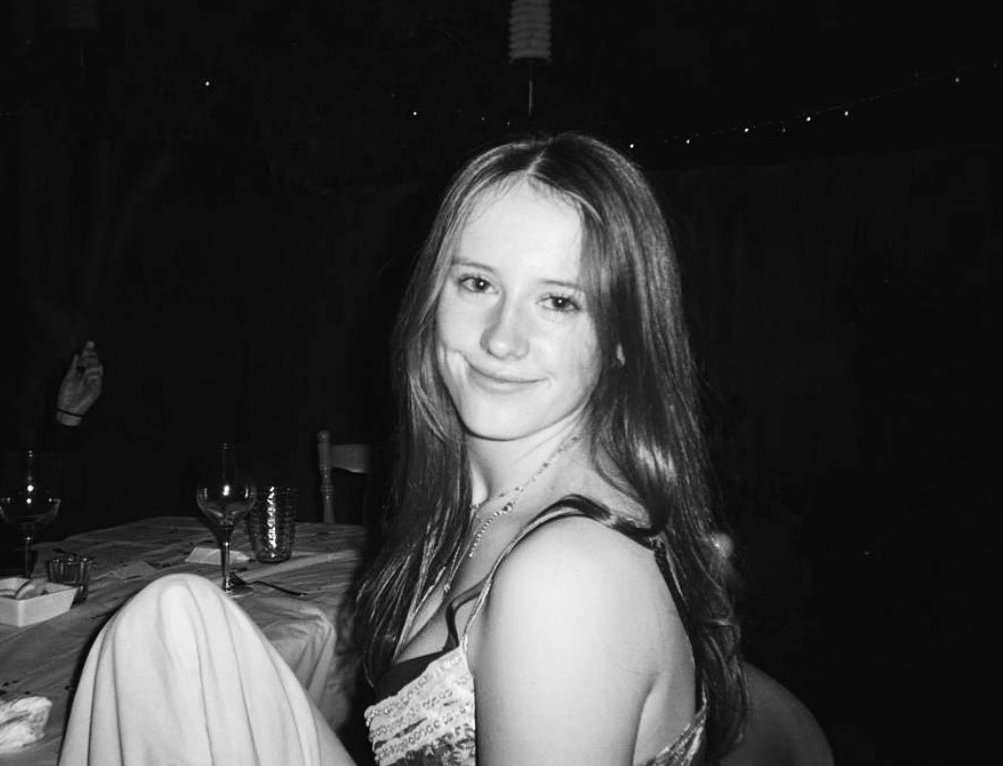I think I [am] particularly uncomfortable with [misrepresentation] because of the history of female absence in the role of the author, as in this day and age, I want to see literature that women can relate to because it speaks to them rather than inaccurately speaking about them.
Rose Evans
A-level student studying English literature, maths, history and Latin at Wycombe Abbey School.
Q & A
Basic Questions:
1. What’s your name?
Rose Evans
2. Where are you from and where are you currently?
I’m from London and I live there currently (but right now I’m in Kenya!)
Specific Questions:
1. What do you think is the relationship between books and human psychology? Why are we so drawn to it? What role do you think plays and films play within society and culture?
I think literature’s relationship with the human mind has changed over time. Initially, without TV, technology and the ensuing obsession with the lives of others, books and plays were one of the only sources of entertainment — that's why there were books like ‘Vanity Fair’ by William Makepeace Thackeray which are very long. Thackeray draws out every social interaction, even though it may not be necessary to the plot. So, I think we were drawn to literature as a means of distraction and leisure in the past. What I think has maintained literature's pull on the human mind, however, is its capacity as a “mirror”. It reflects the concerns and conflicts of the time it is written and in which it is read. Reading is interesting because we all bring our own preconceptions and experiences to a work of literature, and, so, if I continue the metaphor of a “mirror”, books refract slightly differently for each person that comes to look at it.
2. Do you think being a male actor or a female actor matters? Does your gender impact how your work is perceived?
I recently watched a version of Shakespeare’s ‘Hamlet’ at the Young Vic starring Cush Jumbo, a female actress in a role which is famous for its contemplation of masculinity. Despite my assumption that I would be continuously conscious of this directorial choice, I found that I was completely immersed in the performance and only saw Hamlet, irrespective of the gender of the person playing him. I think having a female actress subconsciously brought Shakespeare's interest in the feminine/masculine split within Hamlet to the fore, as Claudius' attack on his masculinity in Act 1 Scene 2 and his relationship with Ophelia had an added dimension. I think this addition certainly enhanced the play and allowed for more interpretations rather than detracting from it. So, ultimately, I don't think we can deny that society has imposed subconscious and conscious biases about gender on us, and we can't just leave these at home when we go to watch a play, but I don't think they are necessarily a negative thing and they can instead elevate a play and encourage new interpretations.
3. What do you do?
I am a sixth-form student studying English literature, maths, history and Latin for A-levels.
4. What was your dream as a child and what is your dream now? Has it changed?
I didn't think a lot about the future when I was little but I always wanted to run an ice cream shop! I think my dream now is essentially the same but has evolved a bit in terms of breadth — ultimately I want to be happy and enjoy whatever I'm doing in life.
3. How can plays be used as a tool to elevate movements such as feminism?
Theatre is derived from Ancient Greek, and from its conception, Aristotle recognised that the purpose of drama is to evoke an emotional response in the audience, whether that be pathos or anger or fear, as well as provide the opportunity to purge these emotions through catharsis. Therefore, this can be and has been, manipulated by playwrights to highlight an injustice towards a particular group, for example, women. I recently watched a production at the National Theatre titled 'Small Island', which was about the arrival of HMT Empire Windrush, and it was incredibly powerful in conveying the struggle of those impacted by it in a way that brought political attention to the matter, as well as evoking a personal desire to educate myself more about the Windrush generation as a member of the audience.
4. For a long time, female characters were wholly written from a male perspective because almost every writer was a man. Consequently, the concept of femininity and how a woman ought to be were dictated by men, dismissing the opinions and thoughts of real women. This made women see themselves through the lens of a man too — we call this the ‘male gaze’ today. Personally, I find myself often trying to unlearn what books I read growing up told me were cool or aspirational. Was there a moment or time when you realised the detrimental impact of misleading books?
Actually, I was struck by the prevalence of male authors in the documentation of female experiences very recently, when I was reading 'The Promise' by Damon Galgut which was the winner of the Booker Prize in 2021. Although I thought the novel was very well-written and that it portrayed the complexity of South African apartheid interestingly, I felt a disconnect between his depiction of female experiences and my own experiences, which detracted from my experience of reading the novel, as I felt there was misrepresentation and I was very aware of the fact that the book had a male author. I think I was particularly uncomfortable with this because of the history of female absence in the role of the author, as in this day and age, I want to see literature that women can relate to because it speaks to them rather than inaccurately speaking about them.
